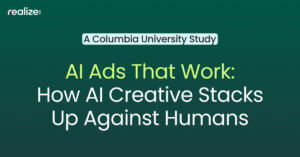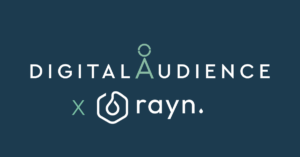In 2019 AI Will Reach the Front Line & In-Housing Will Still Trend Up
by Lindsay Rowntree on 22nd Jan 2019 in News

Recently Jay Friedman, president, Goodway Group, shared his 2019 predictions, as they apply to those with 'boots on the ground', arguing that many predictions do not impact the day-to-day of most people working within the digital advertising industry. Robert Webster, founder of branding consultancy, Canton Marketing Solutions, and digital strategy director of retail intent data company, Sub2 Technologies, found himself disagreeing with some of Friedman's predictions. Here, Webster shares his reasons why.
Over recent years, I have read a number of Jay Friedman’s articles and he is definitely one of the more thought-provoking writers in the space. However, I have to say I completely disagree with three of his main points in the article and thought, in the interests of clarity and debate, it is worth responding.
'Outsourcing one ups in-housing'
One of my predictions last year was that 2019 would see a huge rise in in-housing. This may not be the boldest prediction I have ever made, given that in the U.S., according to the ANA, 78% of their members have some form of in-house agency. We all know that, in the past, the majority of marketing activity, from strategy and buying, through to technology and measurement, was outsourced to agencies. However, I see as a percentage of work delivered, there will be a huge swing to in-house teams because client’s see that they have lost control. A clear area of change is the fact that, recently, clients trusted their agency to run their media via the agency’s preferred DSP. However, you can see examples of DSPs signing clients up directly and, whilst they work with the agency, the key relationship is client direct. This change in strategy is being replicated with DMPs/CDPs and analytics tools. This is the first step to advertisers taking control of their digital marketing activity from strategy, to measurement, and ownership, right through to demanding transparency on execution. Programmatic planning, technology, and analytics are now the bulk of the work; so by doing everything but execution you are in-housing at least 80% of the work. I am sure many clients will execute through an outsourced partner. However, as I said, execution is the smallest part of media these days. For further proof points, I think you need to look to the jobs pages, where far more jobs are being advertised at clients directly, with most agencies reducing staffing numbers.
'Traders will remove a zero from Facebook budgets'
There has been a lot of negative PR over the last year from declining user numbers in Europe on Facebook to privacy issues off the back of the Cambridge Analytica story. However, their revenue numbers continue to rocket, with the latest earnings call from Q3 showing growth of nearly USD$3.4bn (+33%) YOY. The headlines or decreases in MAUs (monthly active users) are exciting; but the reality is Instagram continues to grow aggressively, whilst the largely untapped products of WhatsApp and Facebook Messenger mean that advertisers have more opportunities, not fewer, in the Facebook Audience Network. Some brands may temporarily pull budgets, and there is no doubt that more sophistication is needed in assigning FAN budgets and measuring success, both of which I am confident Facebook will deliver in 2019. The net result will be that we continue to see growth in the FAN and not a 90% decline.
'AI will be a big deal in the C-suite, but nearly irrelevant on the front line'
I wholeheartedly believe that, for the last few years, the value of AI and machine-learning algorithms has been overplayed in companies’ sales and PR material. In the multiple trading teams I have run, I have seen the power of a good programmatic trader with decent technology has time and time again been the most reliable route to success. However, to say that AI is nearly irrelevant on the front line couldn’t be further from the truth. I see the good programmatic and biddable practitioner utilising AI, be that in AdWords, Facebook, or your DSP of choice, such as Amobee or Sizmek. I can point to numerous recent examples of companies that have developed AI or machine-learning solutions available in platforms. Tying it to clients’ objectives is a huge part of building a successful digital marketing setup. I do acknowledge that this is being handled by the practitioner who still has some manual work to do: setting up the line items, ad groups, etc., however this work is made much easier by the tools available. Bid modifiers and programmatic bidding options are reducing the need to have enormous account structures and opening up ever more powerful and automated ways to utilise them.
To be more specific, almost all large search campaigns utilise AI. In addition to Google’s AdWords, there is bid management software from companies such as Marin or Kenshoo. Brainlabs, as a new-breed search company, are heavily pushing the use of AdWords scripts, bid modifiers, and other AI tools to automate processes and add power to campaign setups, without necessarily cutting down on resource needs. In social, Facebook Audience Network can be aided by a variety of AI and machine-learning tools, both available natively in the platform, or from external vendors plugging in. Display has been behind search and social in the rolling out of AI; however innovative companies like Beeswax have created the framework for advertisers to build bespoke algorithms for individual clients. Xandr (formerly AppNexus) is also making a play here, with its programmatic bidder, which is being used by its more advanced clients. This is a big step forward, as in the past companies pushing AI, like Quantcast and Rocketfuel, kept it at arm’s length behind a service layer; whereas now it’s in the hands of the practitioner.
There is a long road yet to travel. AI can still be a blackbox and it needs more alignment to the needs of the brand rather than the benefit of the ad tech platform. However, we already see in 2019 that the frontline is working in tandem with the engineers to harness its benefits and it is only going to continue to develop. Where AI has a long way to develop is in running the full planning and buying process. In 2019, a talented practitioner is needed to install and utilise AI, and a layer of manual planning alongside it, in a given channel, is still recommended. When it comes to running cross channel/omnichannel campaigns, planning and optimisation is definitely a task for the practitioner, for the time being at least. Full digital marketing automation is still some way off.
For me then, finally in 2019, we are seeing the benefits of AI on the frontline, which makes it an exciting time.








Follow ExchangeWire